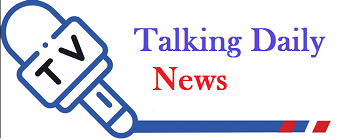Choosing a personal loan and comparing different options for the lowest interest rates is definitely the right approach, but the most important thing to understand is the rate of interest. It is that which figures out the monthly EMI, total repayment amount, and the loan’s affordability. The personal loan interest rates are not consistent in different lenders, however, the factors influencing the rate will remain the same.
In case of online personal loan, by taking these variables as your friends, you can get a better loan deal and definitely a lower interest rate.
Credit Score and Credit History
Credit score is the largest factor that decides how much your personal loan interest rate is. A score above 750 is typically referred to as the best, which allows you to get the best rates. Whereas, if your score is lower because of missed payments, loan defaults, or borrowing excessively, then the lenders may not only increase the interest rate but also refuse to give you the loan.
This can be done easily by paying bills on time and ensuring the credit usage is low. It can have a great positive effect in terms of possibilities that you will get a loan with a small interest rate.
Income and Employment Stability
In order to estimate the ability of repayment of the loan, lenders review your income. People with high incomes are often considered low risk, so they may get better interest rates. Employment with a reputable company or in a stable industry is also a plus for your profile.
If somebody is changing a job frequently or has a gap in their employment history, this may cause a feeling of uncertainty that might lead to a higher interest rate being applied to the online personal loan.
Loan Amount and Tenure
Both the amount of loan and tenure you select affect the interest rate. Shorter loan tenures mostly come with lower interest rates although the monthly EMIs are higher. Similarly, bigger loan amounts can also get lower rates if your financial profile is strong, as lenders value high-value borrowers with good repayment potential.
On the other hand, if you decide to take a very small loan or choose a very long repayment period, lenders may compensate for the increased risk with a slightly higher rate.
Debt-to-Income Ratio
The debt-to-income ratio is the part of your income which is used to pay off the existing EMIs. The higher this ratio is, the more the lenders will assume that your repayment capacity is limited, hence, either they will give you a higher interest rate or reduce the loan amount.
A good way of getting a better rate is to make sure that your finances are in good shape, and you are not committing to pay out too much before you apply for a new loan.
Type of Lender and Loan Platform
Interest rates offered by banks, NBFCs, and fintech platforms can be different for the same job and depend on the policies, customer base, and risk assessment models of the various players. Some are experts in dealing with salaried borrowers, while others specialise in the self-employed.
When you shop for a loan on the internet, make sure to look at the rates at various lenders. Your credit profile helps these digital lending tools offer you some pre-approved or pre-qualified best offers, which will save you the hassle and help better the terms.
Existing Relationship with the Lender
In case you already have a savings account, fixed deposit, or credit card with a bank, you might be entitled to receive preferential interest rates. Regular customers are often regarded as lower-risk, especially if their account history demonstrates regular income deposits and good financial behavior.
Before applying at another bank, it might be sensible to check with your present bank as they might have special loan conditions for you.
Loan Type and End-Use
Generally, personal loans go without security and are for multiple purposes, but a few lenders can decide to give lower rates for specific purposes like education, medical emergencies, or home renovation—especially if such funds are backed up by required documents.
Clearly stating the intended purpose while applying for an online personal loan can sometimes help you access category-specific offers with better interest rates.
Market Conditions and RBI Policies
Interest rates in the economy go up and down in response to inflation, liquidity, and RBI policy changes. Lending rates usually follow the same direction as repo rates, so when the repo rate goes down, lending rates tend to decrease. Taking advantage of a period of low-interest rates can benefit you, especially if you have a floating-rate loan.
You cannot control the market trends, but your knowledge of them will give you a chance to decide on the best time for submitting your loan application.
Conclusion
Personal loan interest rates are influenced by various individual and external factors—a credit score and income from your side, and loan tenure and economic trends on the other side. In case you are thinking of applying for an online personal loan, boosting your financial profile, keeping stable employment, and cutting off existing debts will be some of the ways to get better loan terms. Comparing lenders, understanding how each factor plays a role, and choosing the right loan structure ensures that you will pay less in the long run and handle your installments more easily.


